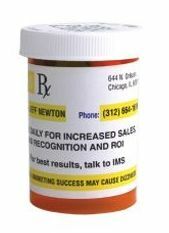The patient and family wait patiently and finally see the doctor. An illness may be diagnosed and appropriate medication is prescribed. The patient, and her trailing children walk to the AHMEN pharmacy and the doctor’s prescription is filled for the patient. In addition to the therapeutic medication given, it is likely that the family will be given vitamins for each member and maybe an anti-parasite medication. We give out lots of vitamins. I wonder the patients think there is some magical power associated with vitamins? The kids sure like them though.
So we hand the mother a labeled plastic zip-top baggie full of vitamins for each child. We carefully admonish the parent and the child about dosage. “Only one tablet each day! These are medicine, not candy”. Off goes the family to their home and we feel good about our successful thwarting of malnutrition.
Each AHMEN medical mission team spends a lot of money on vitamins. They are not cheap regardless of the source. We purchase large quantities for adults, children and pregnant women. We usually try to buy vitamins containing iron, as most brands do. Children’s vitamins are almost always tasty morsels, chewy, sweet and shaped like characters that the kids in Honduras have never seen. What the kids see is a baggie of somewhat sour, but still yummy candy. More than a few times I have seen a child eating their month or two’s supply of vitamins like it was a bag of M&Ms. Did we not make it clear enough that this is ”medicine”? What could we have said differently? Was our translation of instructions accurate? Or, are they just kids that like all others and can't resist sweet treats.
Vitamins are not candy. We adults know that. In the U.S., they are a mega business catering to both parents and the kids. Flintstones, Gummies, every Saturday cartoon hero has a “one-a-day” image of themselves sitting on the shelf at Walmart. Specifically, the problem with vitamins is their iron content. Iron is toxic when taken to excess. Difficult to treat in the U.S., severe iron poisoning in Honduras is likely to be lethal to a child. Vitamins are not the only problem. What if a child gets hold of some blood pressure medicine or some diabetes medicine? The odds of a child surviving an overdose of grandma’s diabetes pills are not good.
We hand out thousands of pills in ways that can endanger people on every medical mission trip. To my knowledge, we have had no medication related problems as a result of an AHMEN mission. We do hear stories about children dying yearly as a result of American medical mission team. Urban legend? More importantly, what can we do about it? How can we lessen the risk of harming the people we work so hard to help?
In the U.S. there are regulations that pharmacies must adhere to concerning packaging, labeling and patient instructions for every prescription they fill. I think it is time for us to try to emulate their good points.
The first change I propose is the use of child resistant containers wherever possible. The plastic bags we use now for medications cast a few cents each. Using plastic pill bottles with “C/R” caps would cost about 18-50 cents per prescription, depending on the size of the bottle. The label on each bag/bottle cost another 2-3 cents. These seem like small amounts, but filling several hundred scripts each day can get expensive. I anticipate that using safe packaging will add $200-$300 to the cost of medication and supplies for most missions. The shear volume of the bottles will require extra baggage.
AHMEN will be sending a team to Honduras in August. Child resistant packaging will be ordered for the clinics this week in hopes that our effort will make our medical mission work as safe as it is effective.



